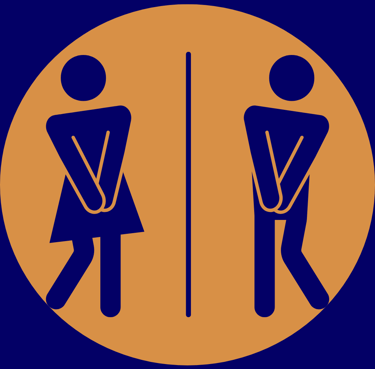
Natural Ways to help Constipation - Part 3: Toilet Habits
Read about some of the natural ways to help constipation. By adopting certain toilet habits you can help to improve your digestion and your bowel movements. Visit our website to learn more.
5/14/20244 min read
In the previous post Natural Ways to Help Constipation – Part 3: Using a poop stool, we discussed how adopting a squat like position by using a poop stool, may be helpful in encouraging easier bowel movements and relieving constipation.
In this post we will talk about how adopting certain habits when going to the toilet may help combat constipation.
Time on the toilet
While there are various factors that can contribute to constipation one often overlooked aspect is the amount of time spent on the toilet. The average time it should take for the perfect poop to exit the body is suggested to be between 10 seconds and one minute. Sometimes it may take a little longer and it is important to feel the bowels have fully emptied, which is why it is also important not to rush. However, you shouldn’t really need to be on the toilet for more than 5 minutes and it should feel easy to pass without pushing or straining.
Many people spend too long on the toilet, taking reading material, phones and even laptops to the loo with them. While you need to give enough time for pooping to ensure proper emptying, you do not want to be spending too much time on the toilet. When you spend too long on the toilet, particularly when constipated, you are more prone to straining and putting pressure the pelvic floor and blood vessels. In the long-term this may result in problems like haemorrhoids and even organ prolapse. Taking distractions to the toilet like mentioned above may also potentially result in the urge being ignored, making it harder to go.
If you are having trouble with constipation it is important to take steps to address the issue.
Don’t Hold On
The urge to go to the bathroom is a natural and necessary bodily function. It is your body's way of signalling that there is waste material in your colon that needs to be eliminated. When you ignore this urge, you disrupt the natural flow of your digestive system and this can lead to a range of issues, including constipation.
When you ignore the urge to have a bowel movement, the stool remains in the colon for an extended period of time. As a result, the colon absorbs more water from the stool, making it hard and difficult to pass. This can lead to discomfort, bloating, and straining during bowel movements.
It is important to listen to your body's signals and make time to use the restroom. When you acknowledge the urge to have a bowel movement you are showing your nervous system that you are listening to it and so it will continue to let you know each time your bowels are ready to evacuated. If on the other hand you continually ignore those signals, you will desensitise this action and your nervous system may over time stop informing you when you need to empty your bowels, resulting in constipation.
Furthermore, ignoring the urge to go can weaken the muscles in the colon and rectum over time. These muscles play a crucial role in propelling waste material through the digestive system. When they become weak, it becomes even more challenging to pass stool, exacerbating the problem of constipation.
If you suffer from chronic constipation and find you don’t get the urge to have a bowel movement, you should talk to your GP or pelvic floor physiotherapist about bowel retraining and biofeedback therapy.
Using the Breath and Sounds
If you are having issues with having a bowel movement try incorporating some breathing while you are sitting on the toilet. Take a few deep breaths allowing your rib cage to expand. You should also notice a gentle expansion of your abdomen with inspiration. Additionally, when you take a breath in you should notice your pelvic floor relax and as you breathe out it should contract, helping close the sphincter. It you are having trouble letting go or contracting your pelvic floor or simply have no awareness of it, it may be useful to see a pelvic floor physiotherapist who will assess how well it is working.
Additionally, another thing to try if you are having issues with constipation can be to adopt making the moo sound like a cow. The reason for this is that making this sound activates the oblique muscles, the muscles on the sides of your torso, helping with the expulsion of poop from your rectum.
If you find that you are still constipated despite addressing your diet, modifying your lifestyle habits and trying things like a poop stool and the suggestions above, you should consult your GP. They may be able to investigate potential underlying causes and find the best management plan for your particular case.


Contact
The Body Project
Level 4,6 Help Street
Chatswood
NSW, 2067
(02) 9884 8758
fiona@topazhealth.au
Quick Links
FAQs
Osteopathy for Gut Health
Osteopathy for TMJ
Fees
Resources
Copyright © 2024 | Topaz Health | Privacy Policy | ABN: 141 202 953 15


Blues Point Practice
117 Blues Point Road
North Sydney
NSW, 2060
0422713396
You Little Beauty
Shop 7, 33 Tramore Place
Killarney Heights
NSW, 2087
0422713396
